Awards Worthy: Rick Hammerly and Felicia Curry
The Helen Hayes Awards co-hosts set the stage for D.C. theater's biggest night

Not only one of D.C. theater’s finest performers, Helen Hayes Award-winner Felicia Curry is also an adept quick-change artist. On a brisk spring morning inside a plush dressing room at The Anthem, Curry makes herself over, from fresh-from-pilates to front-cover-glam, in less time than it takes for her and actor-director Rick Hammerly to recount their rich history as friends and collaborators.
The pair’s easy rapport, spiked with warm, sibling-style ribbing, has developed over the past decade of fellowship both onstage and off, performing at practically every theater in the Washington area. Now best buds, colleagues, and also neighbors in the same Brookland building, Hammerly and Curry might not agree on where exactly their friendship was first sparked, but they can agree they’ve shared some intensely emotional moments together.
For instance, at last year’s Helen Hayes ceremony, they got to share the stage as ecstatic winners. Curry received Outstanding Lead Actress in a Play for her raw, dynamic portrayal of a young woman held captive by her husband in a war-torn nation in Factory 449’s production of Lela & Co. Hammerly — like Curry, a company member of Factory 449 — also took home a Hayes Award for Lela & Co., for Outstanding Director of a Play, his first-ever nomination in the category following four previous nominations as an actor, and one win, for playing Hedwig in Signature’s much-admired 2002 production of Hedwig and the Angry Inch.
Curry had entered the 2018 awards with five prior nominations, and five losses, but with two fresh chances to win: for Lela, and also for her role as Sweet Thing in Arena Stage’s Nina Simone: Four Women. She says finally being recognized with an award was a magical moment. “I’ve been part of this theater community for quite some time and have been going to the Helen Hayes Awards for quite some time,” she says. “And to be singled out in a community like this with so many talented people, it really, really is an honor.”
For Hammerly, perhaps better known for his onstage turns in Hedwig, Angels in America, and The Legend of Georgia McBride than for his many directing and producing credits, simply “being nominated as a director” felt like a victory. “Before I’d won, I won,” he says, adding, “and, yes, it was even better [when] they handed me a trophy.”
Curry notes that the honor was doubly sweet for her last year, although for a different set of reasons. “I’ve been nominated before, but only for musicals,” she says. “Last year was my first year of being nominated for plays. But to win for this particular play, and for what Rick created, and what Rick helped me to create — again, that’s why I used the word magical. Because how many people are lucky enough to create really amazing art with their closest friend? And — Rick and I have both said this — I think we were probably both more excited for the other one than we were for ourselves. I think we were all really excited, but I think both of us, when the other person won, were like, ‘Oh my God!’ It was just a really special night.”
This year, as co-hosts of the 35th Annual Helen Hayes Awards, Hammerly and Curry will apply their magical collaborative energy towards creating a special night for a whole new roster of nominees.
As the pair preps for the big night, they took a moment to offer final words of advice to this year’s contenders.
“Remember what a nomination is,” says Hammerly. “It’s validation of your work. Someone has seen you and said, ‘Wow! That’s good work. They should know it.’ And this is their way of telling you, we appreciate what you did, or we were moved by what you did, or we were so entertained, or laughed so much at what you did. There is something you did that struck a chord in a majority of judges for the Helen Hayes Awards that moved them in one way or another. That’s extraordinary, and you are one of six or seven people in a category. All the theater that’s done here. Think about that. That is amazing!”

METRO WEEKLY: When and how did you meet?
RICK HAMMERLY: Oh my God. A trick question right off the bat!
FELICIA CURRY: It is a trick question. I don’t remember the first official meeting.
HAMMERLY: I don’t either! I feel like she’s always been attached to my hip. I think we knew each other through the theater community.
CURRY: I definitely knew who he was, because, at that time, Hedwig and all that stuff had happened. So I absolutely knew who he was. He was one of those: the Nancy Robinette’s, the Naomi Jacobson’s.
HAMMERLY: Isn’t that hilarious, because I never have thought of myself as that. I’m always looking to them like, Oh my God, they are the–
CURRY: To me, the epitome of what D.C. theater is.
HAMMERLY: Oh, you’re good.
CURRY: That’s true.
HAMMERLY: You’re an even better friend than I thought.
CURRY: So I knew who he was. But we didn’t meet meet, I would say, until Christmas Carol.
HAMMERLY: When did we do the Dizzy Miss Lizzie show? Was that before or after Christmas Carol?
CURRY: I think it was after.
HAMMERLY: After? So honestly, don’t remember the first time, but in 2010, I came on board A Christmas Carol at Ford’s Theatre. Felicia had been in the year before. And that was the first time we started working and actually spending time with each other. And then I would say it’s been a crash course ever since.
CURRY: [Grabbing her phone] Now I’m looking up Dizzy because I just need to.
HAMMERLY: You know, I came in for Finn McCool, remember?
CURRY: Oh my God! That was 2010.
HAMMERLY: So, Dizzy Miss Lizzie’s Roadside Revue had me come in, very last minute, and asked if I would help them with a friend’s show they were doing called Finn McCool. And Felicia was in it. And what was great is, I knew enough about Felicia that I could say, “Hey, for this number I just need it to be more emotionally invested, I just need a few little tweaks,” and bam, Felicia was on it. I didn’t have to worry about her, which was great. And then we just started spending more time together, we kept bumping into each other on other projects — I remember a reading out at the [now closed] Forum Theatre. But then, I would say the biggest thing where we spent time together, we did Adventure Theatre’s Oliver. And that was their first full-scale production, so it wasn’t one of their 45-minute children shows. Felicia played Nancy, and I played Fagin.
CURRY: They asked us to do that show.
HAMMERLY: But we shared the star dressing room at Roundhouse. It was perfect. I’ve done that with, like, Holly Twyford and I shared a dressing room. I don’t know, I just get along better with women.
MW: Where did they put the actor playing Bill?
CURRY: Oh, Bill was another guy from this area but he was in a different dressing room. It was just us.
HAMMERLY: Which is hilarious. Then I used it for Georgia McBride, last year, and boy, did I feel lonely. There I am in this dressing room, I was like, “I miss Felicia.” Because what happened during that show — you know, I think we present ourselves as fairly confident people, fairly together–
CURRY: Oh, absolutely.
HAMMERLY: –but the neuroses in that dressing room! And before each show, me, a wreck about running lines.
CURRY: We had a little system in the dressing room. He would run lines, I would come in and say my little thing, and I would get out of the way.
HAMMERLY: And then at the end of the show, if you came into our dressing room, on my side was the clear liquor, and on her side–
CURRY: The brown liquor.
HAMMERLY: And we’d have a little toast to ourselves. And people from the cast would come by and join us or something, but it was the first time we spent concentrated time together.
CURRY: And really creating stuff, creating this relationship between these two [characters]. We knew Oliver, but we really wanted to add ourselves to it as much as we could, and really get to the depth of what this story potentially could be.
HAMMERLY: And when you’re brought in as, “Ooh, with Felicia Curry and Rick Hammerly in Oliver,” you feel a responsibility to up it. So we really worked to make these characters as three-dimensional as possible. For someone like me, I’m not the world’s best singer. I can sing, and I can do character stuff. That’s why something like Hedwig or Oliver is perfect for me. I’m learning from this one — she can sing. I wanted to be able to be on the same level with her. It meant having to really work, character-wise, and make this relationship with us and the kids.
CURRY: We focused on us, but we really wanted the kids to be part of that storytelling. And I really love that ATMTC does that for these young people — allows them to come in and do shows with professionals, because we treat them as such.
HAMMERLY: We had thirteen kids who were my gang, and they were boys, girls. The youngest was Lottie Doughty. She’s always been like a forty-year old woman in a 10-year old’s body. But I still talk with her mother. The kid who played Oliver, his mother still calls, “Hey Rick, do you think that we should do this, he got an offer for this, what do you think of that?” I love that we still have a relationship with these kids and their parents, and they’re asking me. I wish I’d had someone at that age telling me, guiding me a little, because I was all over the place.

MW: Are you, sort of, godmothering a lot of theater kids?
CURRY: Yes! Come on, godmother.
HAMMERLY: “Kiss my ring.”
CURRY: I love that.
HAMMERLY: I would just say that I am there if anyone needs advice about something, or says, “What do you think of this, or what do you think of that? Should we audition for this, is this an okay organization, do you know so-and-so?” Absolutely. I love that.
CURRY: I think the young people we work with know that they can always reach out to either one of us if they have questions about anything. And I think that includes the Oliver kids, the Christmas Carol kids. Who even now, I just saw one of the Christmas Carol kids from one of our earlier years, and she was an intern at Signature Theatre. She’s like nineteen now.
HAMMERLY: And, by the way, I guarantee you is now a foot taller than Felicia.
CURRY: Oh, at least. Please. But yeah, I think that they all know that we’re colleagues. That’s the type of relationship we have with them.
HAMMERLY: I’m going to jump back to the dressing rooms. That year, Felicia and I got nominated for Helen Hayes Awards. Now, I found no shock that Felicia got nominated for that. But not only did I get nominated, but so did “Oliver,” Franco Cabanas, in the same category I did.
CURRY: And more importantly, the ensemble. That was really special.
HAMMERLY: It was a great thing for us. We were really proud of that, because we felt like we gave a lot to that. Any time, first of all, you do a show with another artist, much less share a dressing room with them, you get the dirty, you get the neuroses, you get all of that. And it made us super close.
CURRY: Yep.
HAMMERLY: And I knew right from the get-go that, “Okay, this is someone I want to work with in one capacity or another.” Whether it’s we act on stage together — which, by the way, we’re always looking for something, it’s hard to find something we’re both appropriate for — and I knew I wanted to direct her. Because I think one of the things that was frustrating, and I know it was for Felicia for a while, is that because Felicia can sing, they’re like, “Oh, she’s a musical theater person!” So that’s what she was called in for. Because Felicia has a ton of energy and works well with kids, “Ooh, let’s call her for children’s theater!” And three, because Felicia is three-foot four, “Let’s call her in to play children!”
CURRY: [Laughs.] I hate you.
HAMMERLY: So she got caught in this loop, and that’s what she was playing. And the Felicia Curry I knew could do so much more, and we started talking about that, and we need to find something that shows that. Felicia’s like, “I’ve done this, I want to show people that I’m an actress, I can do a play, a straight play.” So she started getting a little of that, and she did Disgraced over at Arena, and it was great. But every time she was cast in a play, and those are still far and few between, she was a tertiary role, or she was a supporting role. I was like, “This is ridiculous, we need something that shows you can carry a play on your own, but also what a range you have.” And when I read Lela and Co., I was like, not only is this a good play, but this can show off everything that Felicia is. Working on that show, and being able to allow Felicia to show that…. I’m getting emotional.
CURRY: He says the range that I have, but he as a director brought things out in me. And I imagine that’s because he knows me so well. He knows that this is not the threshold, he knows that there is something else, whether I know it or not, he does. And he really did through that whole process. “That color is great, but what else can we find? What have you thought about this?”

MW: I saw the show, it was really intense. How does it test a friendship, to dig into material that’s so dark and intense?
HAMMERLY: I have to be honest, it didn’t test our friendship, I think it —
CURRY: Strengthened it.
HAMMERLY: I really do. I trust her, and I know you trust me.
CURRY: All I can say is that even in the moments in the room where we had disagreements about where something should be going, I trust him. So at the end of the day if I’m saying, “I’m not really sure,” if he says, “Felicia, I really think what I’m thinking about is this,” I step back and I trust him. He wants what’s best for me, he wants what’s best for the show.
HAMMERLY: Exactly. She knows that I want to show off the best that she can do. So, it’s a very safe place to fail, to get it right, to do things.
CURRY: To try, yeah.
HAMMERLY: Felicia knows I am such a crier. I don’t present that way, but literally anything can get me going. Talking to you right now is getting me going a little bit.
CURRY: I am not a crier.
HAMMERLY: In that room, creating, during rehearsal I would just, [mimes sobbing] “Okay, that’s really good.” I was a mess! But this is how much Felicia trusts me. Felicia is a very emotionally connected actress, so she can tap into something very quickly. During Lela, there were several moments which really warranted that. But Felicia’s also so adept at that, that when we put up the show, and I came back a week later and saw Felicia cried like seven times, after the show I’m like, “Could I see you for just a moment? Here’s the deal, you get three times in the show where you can let it go.”
CURRY: That’s what he said.
HAMMERLY: “Otherwise you’re doing the audience’s work for them. I want to be moved by you, but if you’re doing it for me, I can just sit and watch. So I need you to choose those three moments, and you know what, I trust you. Those three moments are up to you. Now, I think if you don’t cry at your baby’s death, you’ve screwed yourself.”
CURRY: “But that’s on you.”
HAMMERLY: “That’s your choice, girl.” Again, it wasn’t changing it, that wasn’t it. I knew how powerful you could be and I feel like you’re taking a little power away from the show by doing that. And I know that’s not the easiest thing to hear.
CURRY: But I needed to.
HAMMERLY: But she knows that I’m out there saying we want to keep this at this level, and this will help do that. As an actor, you have to have a director out there.
CURRY: Always.
HAMMERLY: We all think we know what we’re doing, think we know the best for us. People like Bette Midler really think it, it’s why she hasn’t done a good role in about 20 years. She’s undirectable, she won’t listen, she knows everything. I will never believe that. You need that outside eye to say, “Listen, I’m not seeing this.” Because there’s so many times you think you’re conveying something, you think you’re doing something, but it’s not reading that way or it needs to be more specific.
CURRY: And you need a pair of eyes that you trust out there to tell you that. You just do.
HAMMERLY: Exactly. And back to your point about knowing each other really well, there are actors that we’ve seen on stage for years. Holly and Nancy, and I’ve seen Felicia on stage a lot. And Felicia does this thing with her thumb–
CURRY: Oh god, he has to talk about the damn thumb.
HAMMERLY: — that whenever she does this, [holding his hands palms upward], her thumb’s out. And she started doing this, and I said, “No, no, no. We’re not doing that, Felicia.”
CURRY: We’re not doing the thumbs out. Put it away.
HAMMERLY: This is a different character. Other people would not recognize that of Felicia. I do because I’ve seen her so much and I know her. And I think that’s actually really exciting.
CURRY: It’s so helpful.
HAMMERLY: It means you can really get rid of things and find new things if someone knows you well enough to say, “I’ve seen that a hundred times. Let’s not use that this time.” It just made for an incredibly fulfilling experience doing that show. And not just with Felicia, but with everybody involved.
CURRY: And I was really proud of the fact that at the Hayes Awards we were acknowledged as a production. I mean [Rick and I] were singled out, lighting was singled out, but at the end of that was the production. That really is a testament to what Rick put together, what Rick created. He put together that team of people, he had this vision, he got us all to a place to create this production that was very small. To be “Best Production,” I mean, there’s two people in the show!
HAMMERLY: On top of that, it was a show that — you watched the audience, and I felt awful. We had several friends, or people we knew, who came and they couldn’t even talk to us afterward. They were just like [wipes away tears] and walked away and left. People couldn’t articulate–
CURRY: The feelings.
HAMMERLY: To see that happen to an audience. I know it was dark, and I know it was heavy, but to watch Felicia move people that way, and to tell a story that needed to be told — and, as ugly as it was, people need to know it. Everyone needs to know what goes on all over this globe. It felt important, it felt personal.
CURRY: It felt like the type of theater that we want to always do. Important, relevant, life-changing, question-asking.
HAMMERLY: Don’t get us wrong–
CURRY: You sometimes want to do a Georgia McBride. I get it.
HAMMERLY: Yes. I would look out at that audience at the end of Georgia McBride, and people were so happy. Older people, younger people. I was like, this show is uniting people and I’ve had more people contact me about that show saying, “I was so happy, you made me so happy.” Well, thank God, because a year ago I made you so sad. And it’s one of the joys of that show. It was so happy.
MW: What do you most look forward to about co-hosting the Helen Hayes Awards together?
HAMMERLY: Even after years of performing I still get nervous on a stage and Felicia relaxes me. I feel very comfortable with her and I trust her. I know she trusts me. Now watch, now we’ll fall on our faces, but I never feel like there is a moment where one of us won’t be able to pick up the ball and keep it running. And so, of course I’ll still be nervous but it won’t be the same, you’re not doing it alone. You have a partner who you trust, and I also have fun with Felicia and I think that’s what I am looking forward to. Just to show people once again our camaraderie and our comfort level and how much we do enjoy entertaining and, in this case, taking people’s hands and sort of taking them through this awards experience in a classy and expedient manner.
CURRY: Rick and I always have a good time when we’re together, so I think the thing I’m looking forward to is including everybody in the D.C. theater scene in that good time that we’re having.
HAMMERLY: Yeah, what this night does, and one of the reasons it’s always been so special to me, when you show up for those awards everyone there is either part of the theater community or supports the theater community. You don’t have someone just wandering in off the street. And all of those people understand what it means to do theater. They understand the sacrifices, they understand the hardships, they understand the lack of money, they understand the frustration of not getting work sometimes, of hanging onto work. It’s wonderful being in a room where everyone knows that. Where everyone knows what it means to do theater.
The 35th annual Helen Hayes Awards ceremony is Monday, May 13, starting at 7:30 p.m. (doors open at 5:30 p.m.), at The Anthem, 901 Wharf St. SW. Tickets are $100, or $50 for theater professionals, and include the post-show party. Call 202-337-4572 or visit www.theanthemdc.com.
Support Metro Weekly’s Journalism
These are challenging times for news organizations. And yet it’s crucial we stay active and provide vital resources and information to both our local readers and the world. So won’t you please take a moment and consider supporting Metro Weekly with a membership? For as little as $5 a month, you can help ensure Metro Weekly magazine and MetroWeekly.com remain free, viable resources as we provide the best, most diverse, culturally-resonant LGBTQ coverage in both the D.C. region and around the world. Memberships come with exclusive perks and discounts, your own personal digital delivery of each week’s magazine (and an archive), access to our Member's Lounge when it launches this fall, and exclusive members-only items like Metro Weekly Membership Mugs and Tote Bags! Check out all our membership levels here and please join us today!




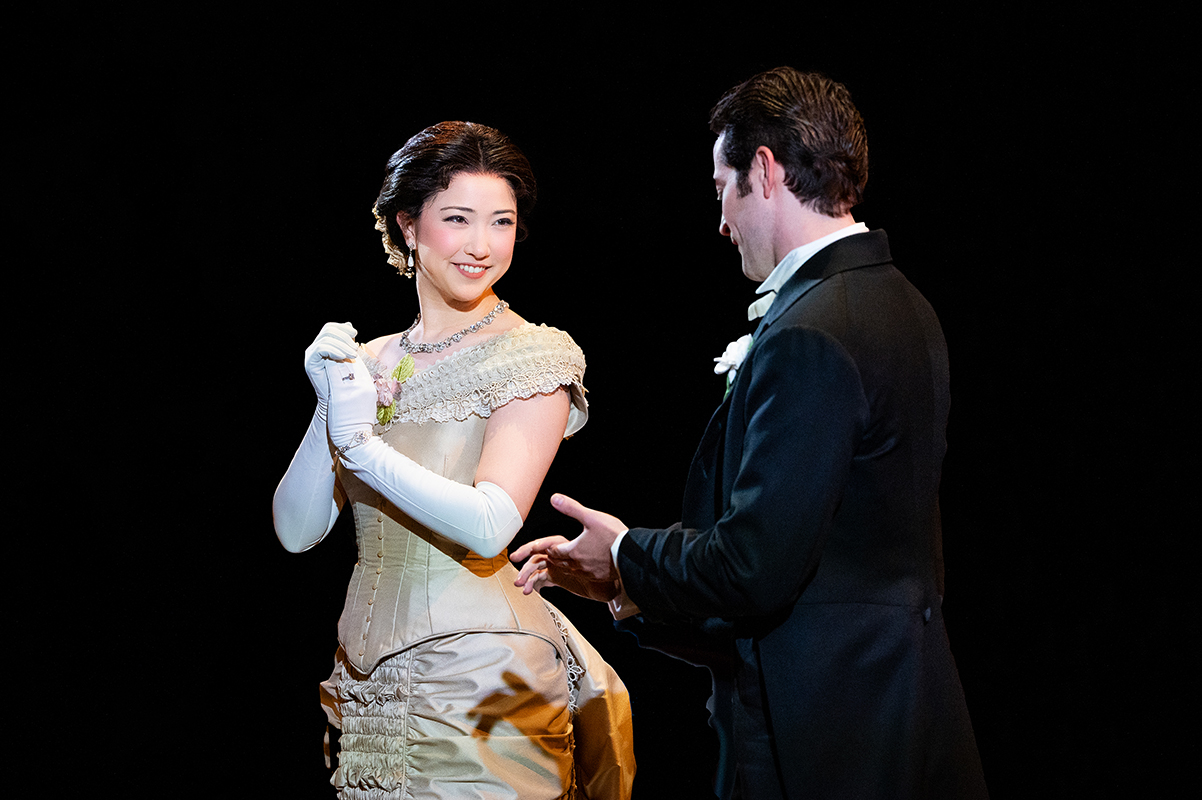
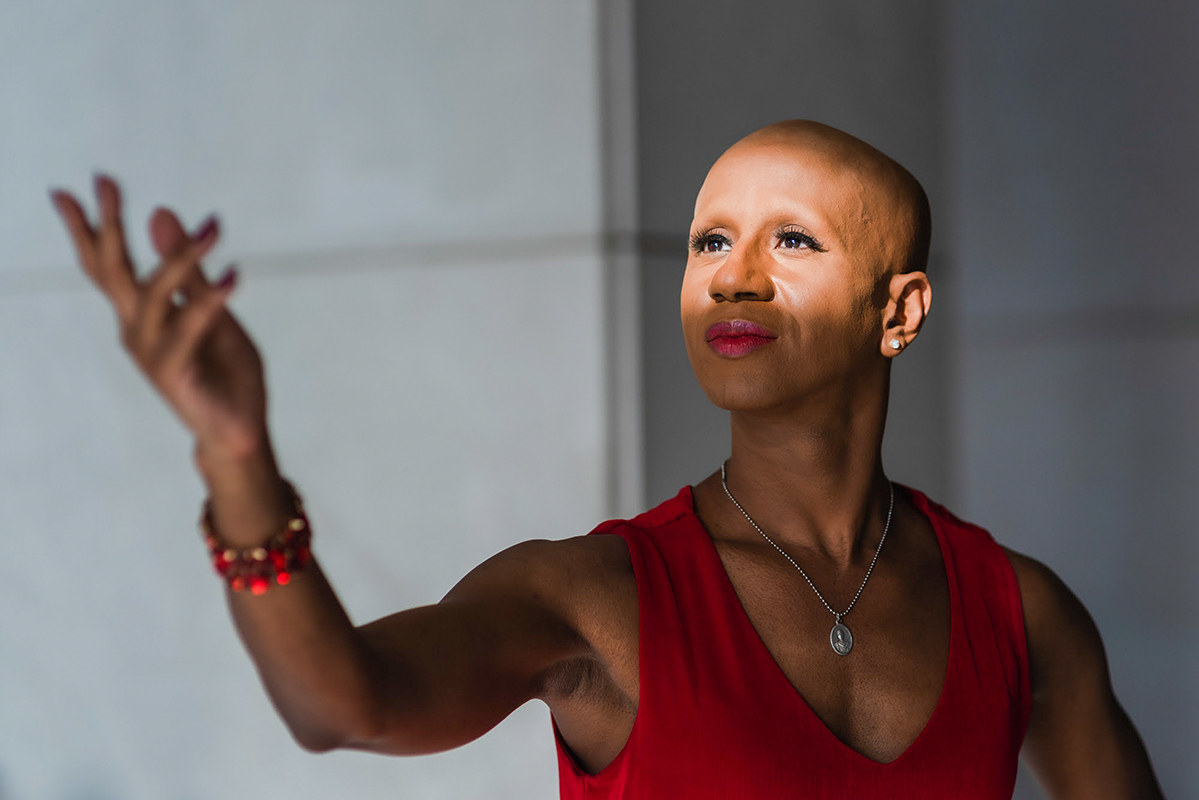














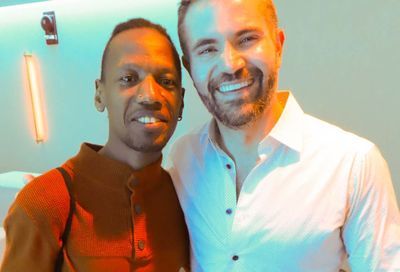
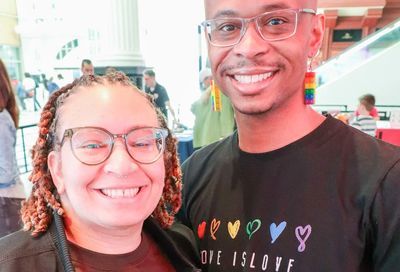
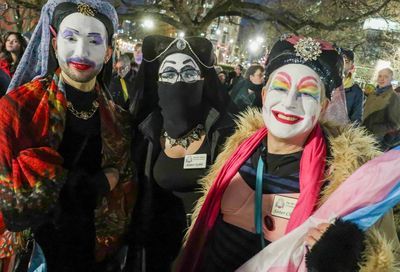
You must be logged in to post a comment.